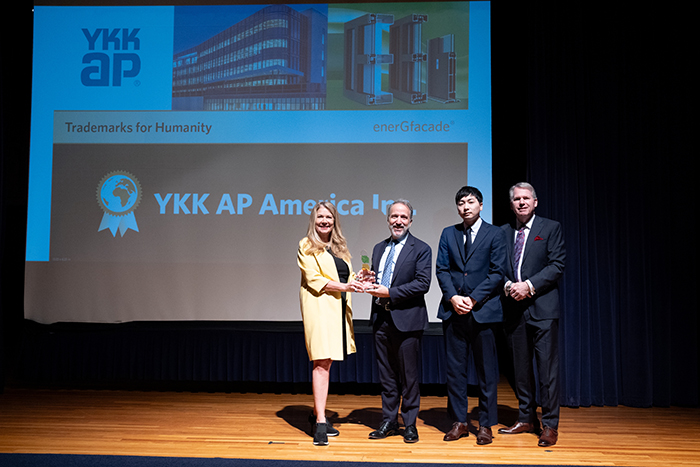
YKK AP America announced its selection as recipient of the U.S. Patent and Trademark Office’s inaugural Trademarks for Humanity award in the environment category. The award recognizes companies that are using intellectual property to address environmental and climate change challenges. Winners were recognized this week in Washington, D.C.
Why YKK received the award
YKK AP was recognized for its enerGfacade trademark. The enerGfacade brand name was first trademarked in 2010, making YKK AP the first company in the building materials industry to launch an environmentally efficient product line.
Over the past 14 years, enerGfacade has grown to include entrances, storefronts, curtain walls, sun control systems, windows and balcony doors. These systems leverage patented technologies to improve energy efficiency, reduce costs and simplify installation. These also use advanced thermal barriers and compliance with evolving building code and green standards, including ASHRAE 189.1.
What YKK has to say
“This recognition is a tremendous honor and a true validation of our organization’s dedication to positively impacting the global environment, while continuing to create value for our customers,” says Raymond Shelton, vice president of sustainability and communications for YKK AP America Inc. “At YKK AP, we are committed to sustainability through initiatives focused on reducing our carbon footprint. From advancing renewable energy solutions to modernizing processes with energy-efficient equipment and cutting-edge automation, we are working to create lasting environmental benefits. This effort is ongoing, and as we continue investing in sustainable practices, we remain focused on our purpose: building a better society through architectural products.”
About the award
According to the USPTO, the Trademarks for Humanity award highlights businesses that are finding unique and creative ways to reach underserved markets. The winners’ stories show that humanitarian engagement is compatible with business interests and strong intellectual property protections, and that companies can effectively contribute to global well-being while maintaining commercial markets.


